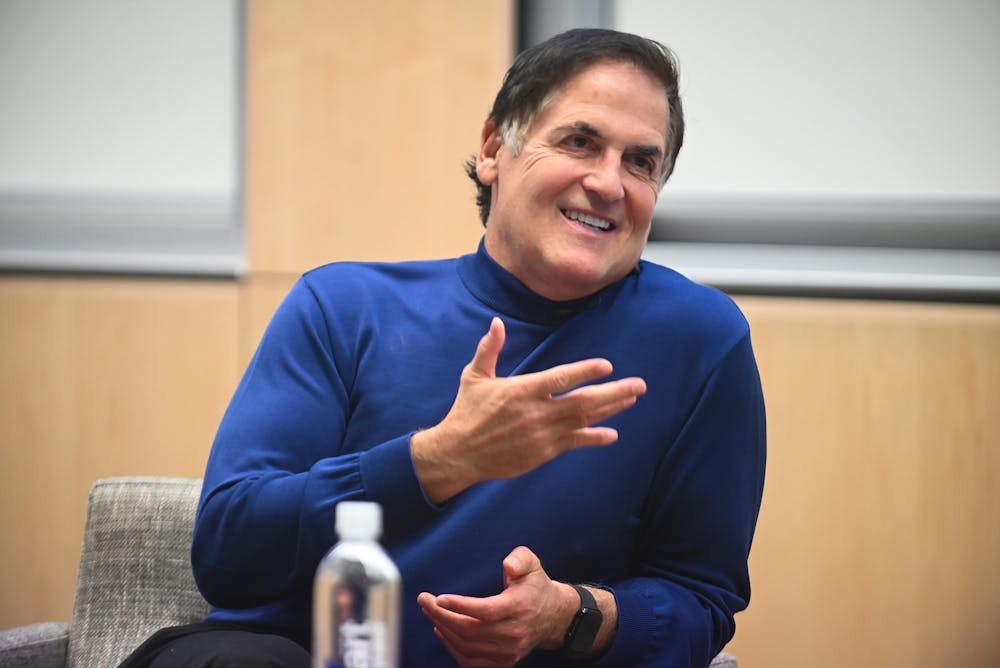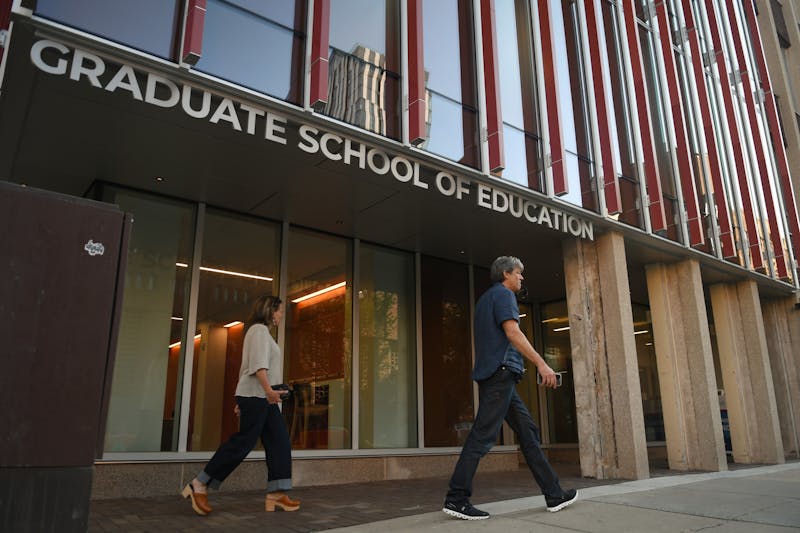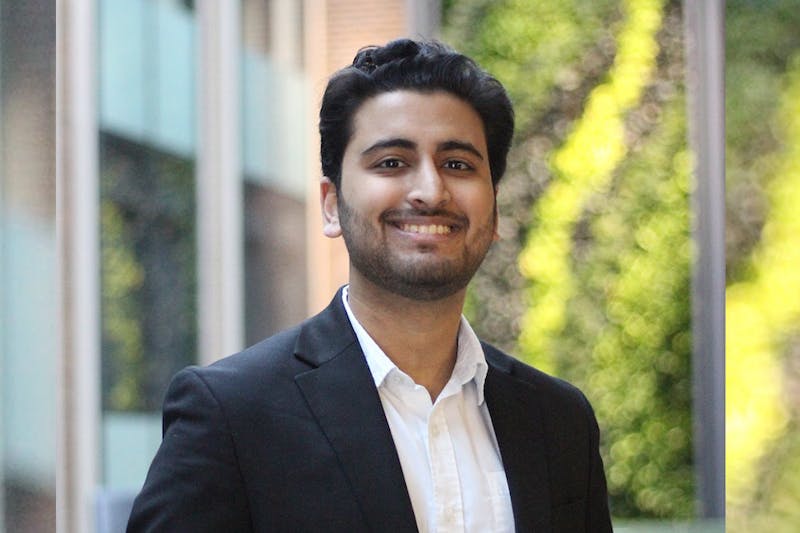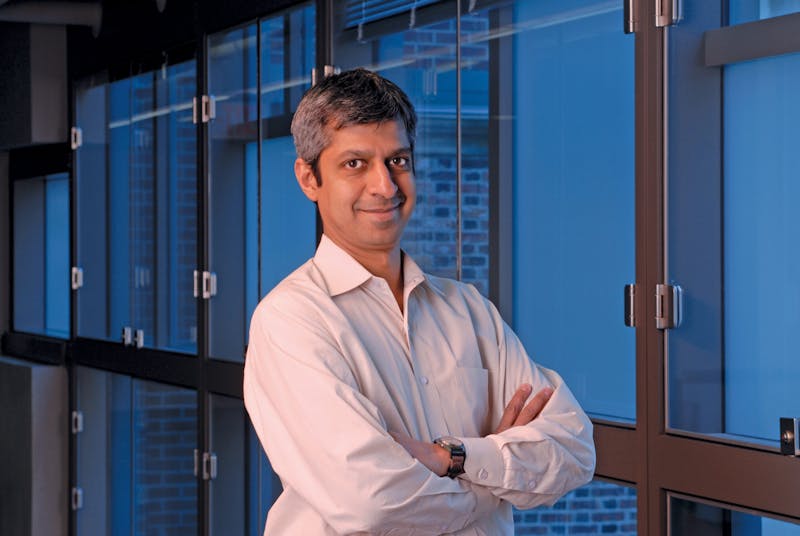
Businessperson Mark Cuban spoke at a fireside chat hosted by the Penn Leonard Davis Institute of Health Economics on Nov. 25.
The Cost Plus Drugs co-founder and "Shark Tank" investor spoke about his mission to reshape health care by increasing the affordability of medications and improving transparency. Hundreds of attendees gathered at Claire Fagin Hall for the event, with some arriving as early as an hour before to secure a spot, as the venue quickly reached maximum capacity.
The fireside chat, titled “Drug Pricing Failures in America," was co-hosted by Penn LDI and Wistar Institute Executive Vice President David Weiner. Vice Provost for Global Initiatives and Perelman School of Medicine and Wharton professor Ezekiel Emanuel moderated the conversation. Emanuel's health care management course “American Health Care and the Future of the American Health Care System” served as a "co-host" of the fireside chat, with students from the course asking Cuban preapproved questions.
Cuban spoke about his journey into the pharmaceutical side of the health care industry, which he described as “far from efficient, far from transparent.” He cited systemic failures in drug affordability and accessibility as motivating factors that led him to found Cost Plus Drugs, a public benefit corporation dedicated to making medications more affordable through a transparent pricing model. Unlike traditional companies, they sell directly to consumers and employers.
“We show you exactly what we pay for. We show you our markup, which is 15%. We [publish] our price list,” Cuban said. “The industry is f**ked up. That was the attraction to me. That created a huge opportunity.”
Cuban said that he was motivated by the company's social impact, as he was "rich as f**k" and “didn’t need any more money.” Candidate for a master's in bioethics Merjan Ozisik, a research assistant for Emanuel who helped organize the event, noted that Cuban’s wealth placed him in a unique position to enter health care and “not care about making so much profit.”
Cuban — who advises Penn’s blockchain accelerator — discussed what it takes to disrupt industries when just starting out: a passion for learning. He told the audience that by dedicating yourself to learning, you can get a “competitive advantage” regardless of where you start.
“People say, ‘Follow your passions.’ I think that’s bullshit. You’ve got to follow your efforts,” Cuban said. “Where are you willing to put in your time? Because when you’re willing to put in your time, you’ll realize that you’re going to get better at things. You’re going to have knowledge, and it always just takes one little piece of information to give you an edge.”
Wharton MBA first year Yusuf Mallick said that he was impressed by Cuban’s deep knowledge of “various avenues within the pharmaceutical space.” Mallick also said he found Cuban’s authenticity inspiring.
“I’m so used to seeing him in the media that it was a little bit surreal to see him in person,” Mallick said. “He’s someone who is authentic in all situations. That’s the mark of someone who’s truly special.”
The Daily Pennsylvanian is an independent, student-run newspaper. Please consider making a donation to support the coverage that shapes the University. Your generosity ensures a future of strong journalism at Penn.
Donate









